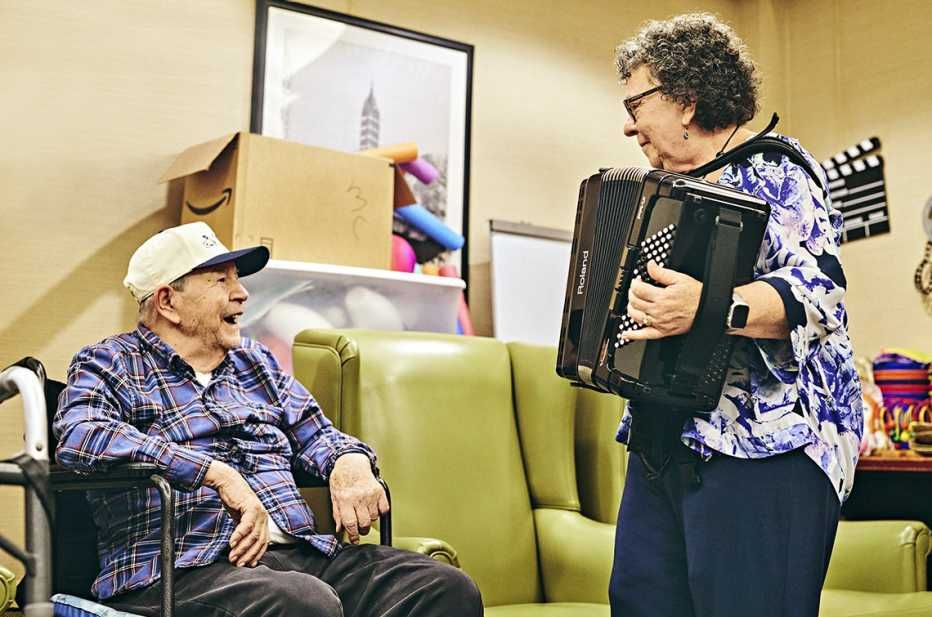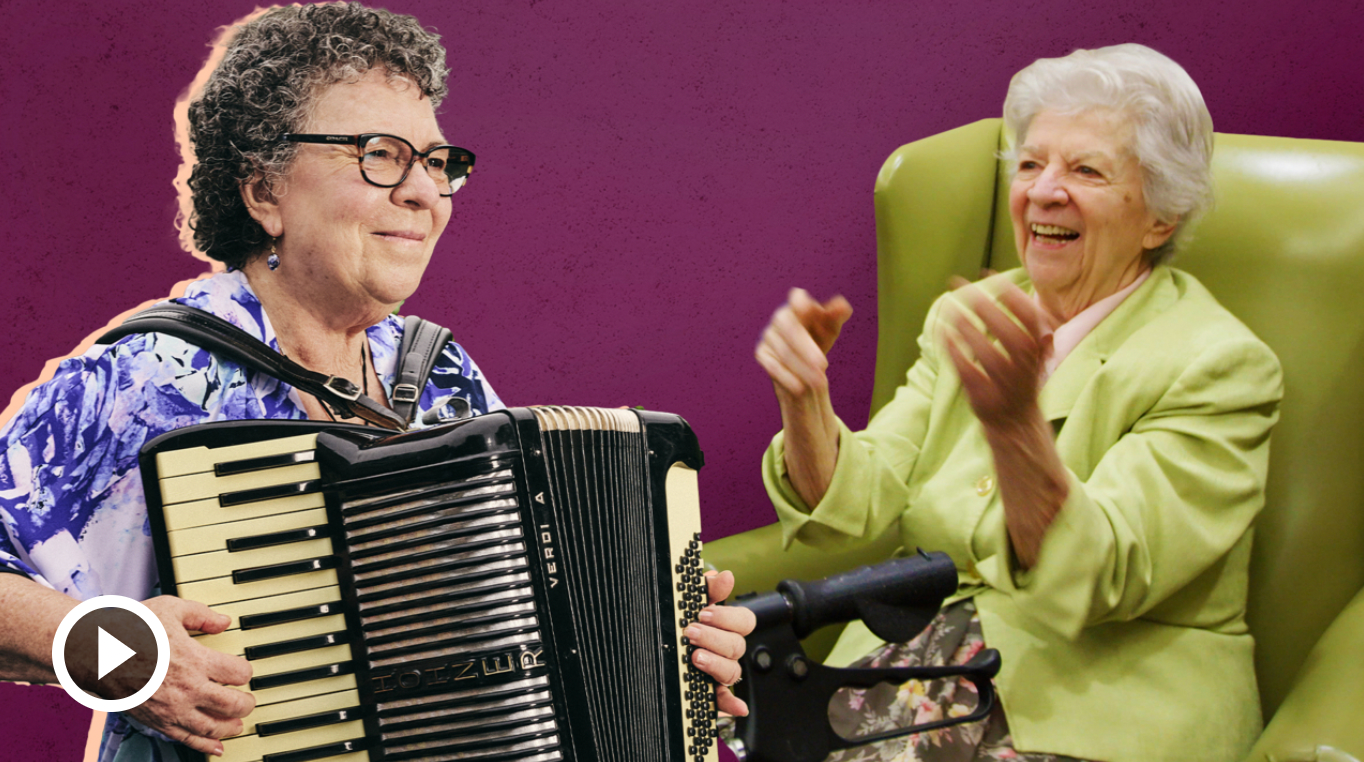The Extraordinary World of Music and the Mind
Video: Dr. Concetta M Tomaino Shows Powerful Link Between Music and Memory
We’re excited to announce that the Institute for Music and Neurologic Function (IMNF) was featured in the Nov 2023 issue of AARP magazine, “The Extraordinary World of Music and the Mind”!
AARP boasts a vast readership, with over 38 million members nationwide, making it one of the largest and most influential organizations advocating for older adults.
Check out the captivating video (above) featuring our very own Dr. Concetta M. Tomaino, as she delves into the powerful link between music and memory. From her humble beginnings as a music therapy graduate to her legendary status as a pioneer in treating dementia with music, Dr. Tomaino’s journey is nothing short of inspiring.
Enjoy an excerpt from the article below or
read in full
at aarp.org.
Concetta Tomaino was 24 years old in 1979 when she graduated with a master’s degree in music therapy from New York University. She would go on to become a pioneer in the use of music to treat dementia, and today, at 69, she is a legend in the field, the dedicatee of neurologist Oliver Sacks’ 2007 book Musicophilia, the past president of the American Association for Music Therapy, and the executive director and cofounder of the Institute for Music and Neurologic Function housed at Wartburg, a senior living facility in Mount Vernon, New York, where I recently visited her. Cheerful and soft-spoken, with a round face and curly brown hair, the Bronx-born Tomaino was, she says, “a big science kid.” But she also played accordion and trumpet. In college, she blended her loves of music and science when she decided to switch from premed to a degree in music therapy.
Tomaino was still a student in
tern in 1978, fulfilling the 1,200 hours of clinical fieldwork necessary for her master’s, when, at a nursing facility in Brooklyn, she encountered her first dementia patients — a population not then generally considered to be candidates for music therapy.

As was common in that era, the dementia patients were severely neglected: heavily drugged, hands encased in mittens to prevent their clawing at themselves, outfitted with nasal gastric tubes for feeding, and left to scream and wail in confusion and anxiety on an upper floor of the facility. “Nobody went up there,” Tomaino recalls. “It was this horrible, horrible place. The cacophony!” A nurse told her, “Oh, it’s so sweet of you to come, but they don’t have any brains left, so don’t expect too much.”
Tomaino
refused to believe it. She lifted her accordion and started playing the opening chords of “Let Me Call You Sweetheart,” a hit tune published in 1910 that became even more popular when Bing Crosby recorded it twice, during the Depression and World War II.
Click here
to continue reading on aarp.org.



Leave a Reply